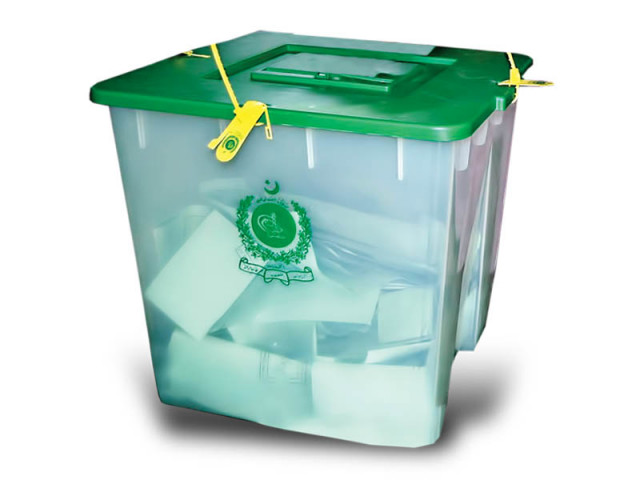2013 polls: For fairer elections, engage the youth and ensure women participation
Four-member assessment mission issues recommendations for upcoming elections.

2013 polls: For fairer elections, engage the youth and ensure women participation
The 2013 polls could very well mark the first time in Pakistan’s history that an elected civilian government transfers power through a democratic process. The elections present an opportunity for Pakistan to continue its reform momentum and advance its democratic transition through what the National Democratic Institution (NDI) hopes will be a “historical transition”.
An NDI assessment mission — consisting of Canada’s former prime minster Joe Clark, former Indonesian House of Representatives member Nursanita Nasution, Chatham House senior fellow Xenia Dormandy and NDI Asia programmes director Peter Manikas — released its findings at a press briefing in Islamabad after its observation of Pakistan’s political framework.
The mission visited Pakistan from December 16 to December 21 and met with election authorities, government officials, party leaders, media and citizen monitoring groups.


Clark commended the cooperation of all parties, especially in adopting measures to bring the Federally Administered Tribal Areas (FATA) under the political umbrella. He said that amendments made to the constitution in order to foster the transparency and autonomy of the election — through the establishment of an independent Election Commission and a caretaker government for a smooth transition — reflects the parliament’s integrity and commitment towards a fair democratic handover.
“An unprecedented youth bulge” will be an exciting challenge for the running parties, he said, who will have to find ways to engage these young voters through social media campaigns.
Nearly half of the 85 million registered voters to date are under 35 and a significant percentage will be voting, making it the first time that the polls are largely dependent on the participation of young, hot-blooded citizens who wish to invest in change that will tend to their frustrations. However, their involvement, which has been little if at all in the past, is a huge test for all parties, Clark said.


Nursanita Nasution highlighted the need to address the rights of women in the polling process so that “fear and intimidation in high-risk areas such as Balochistan, FATA, Khyber-Pakhtunkhwa and Karachi” would not strip women of the opportunity to vote.
Xenia Dormandy suggested “improving accessibility and adjusting locations” of women polling stations closer to those for men so that they could travel with the men in their families to vote.
The mission highlighted the problems of voter’s lists, delays in resolving electoral disputes, impartially of ECP staff and the role of political violence as obstacles that will have to be overcome through improving the electoral complaint process and effective monitoring of adherence to the code of conduct.
“We are impressed with the cooperation of all the stakeholders in assuring a smooth transition,” said Sandra Houston, Regional Director of NDI, sharing that voters have been registered with Computerised National Identity Cards and biometrics including photographs where possible.


The NDI is a nonprofit, nonpartisan nongovernmental organisation working to support and strengthen democratic institutions worldwide, according to a press handout.
NDI has supported Pakistan’s struggle for democracy in the prior elections held in 1988, 1990, 1993 and 1997 but according to Houston, expectations about the upcoming elections are higher than ever, as all political parties have shown a strong commitment towards the progress of a budding democratic system.
How to ensure fairer elections
• By carrying out robust voter education in multiple languages using various media
• By giving everyone greater accessibility to the voters list
• By publicising security plans and training members of the armed forces on their roles and responsibilities in the electoral process
• By protecting the right of women to vote
• By taking effective measures to ensure election monitoring
• By the enforcement of electoral regulations and codes of conduct
• By reviewing the regulations concerning transport of voters to the polls
• By using social media to broaden voter engagement
• By taking measures to improve the timing and transparency of the electoral complaints process
• By effectively monitoring the adherence to codes of conduct
• By adjusting locations and improving accessibility to polling stations
• By improving civic awareness through the airing of public service issues and voter education on radio stations in local languages
• By taking timely legislative action to address electoral reforms
Published in The Express Tribune, December 22nd, 2012.



















COMMENTS
Comments are moderated and generally will be posted if they are on-topic and not abusive.
For more information, please see our Comments FAQ